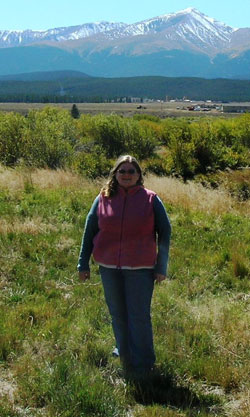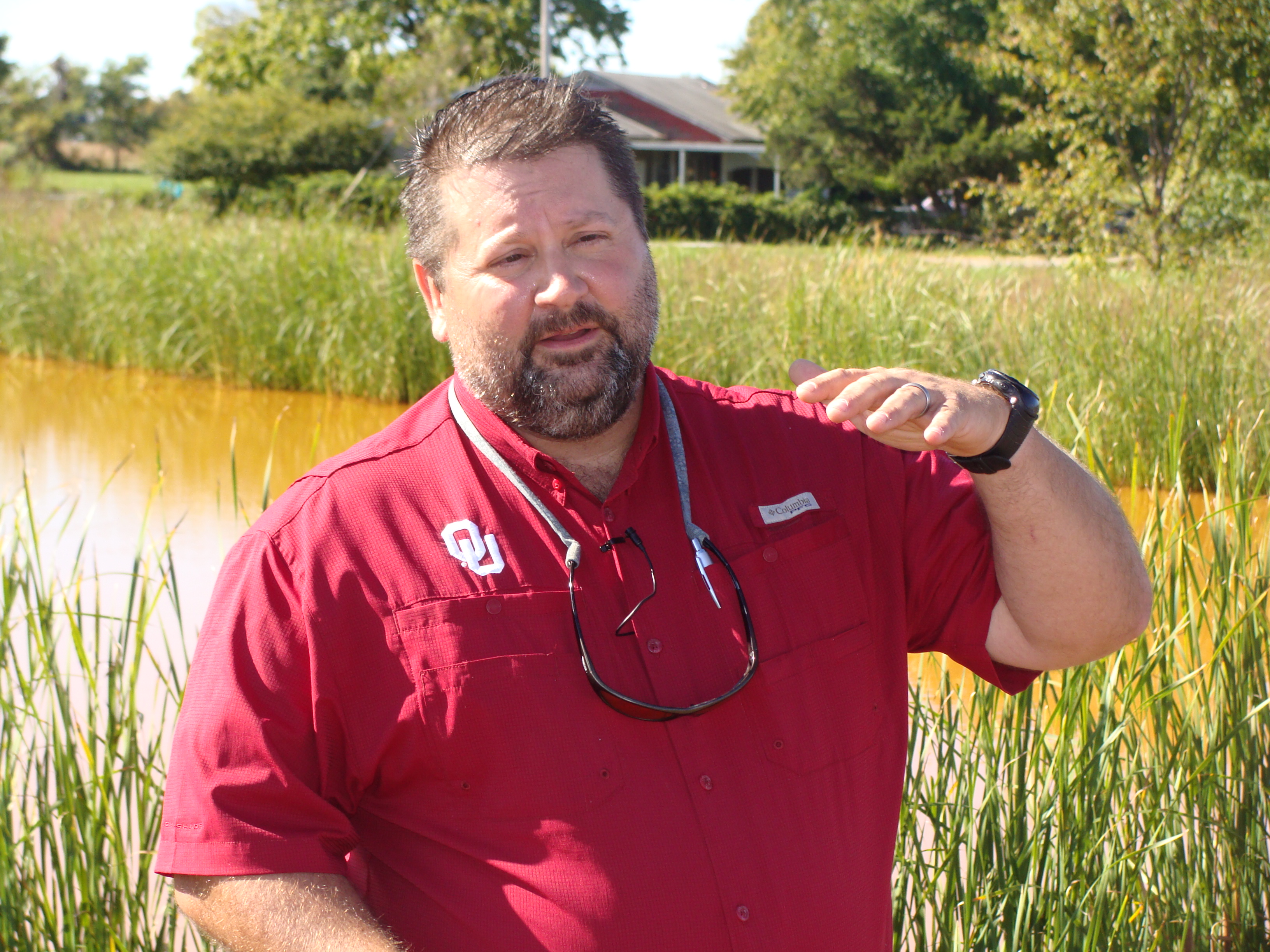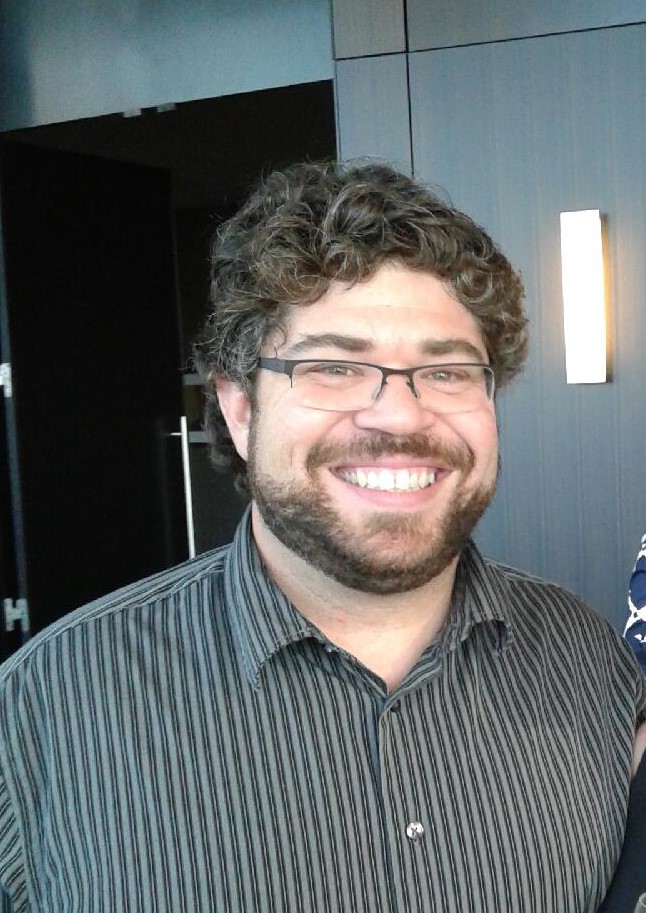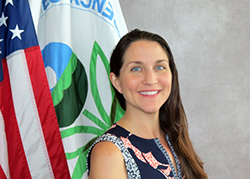Toward Sustainability of Passive Treatment in Legacy Mining Watersheds: Operational Performance and System Maintenance
Sponsored by: U.S. EPA, Office of Superfund Remediation and Technology Innovation, Technology Innovation and Field Services Division
Archived: Wednesday, February 16, 2022
Toward Sustainability of Passive Treatment in Legacy Mining Watersheds: Operational Performance and System Maintenance
2022-02-16
U.S. EPA, Office of Superfund Remediation and Technology Innovation, Technology Innovation and Field Services Division
For 40 years, passive treatment systems (PTS) have been the preferred option at many abandoned mining sites, in part due to presumptions of continuous water quality improvement performance and limited operation and maintenance commitments. However, documentation to support these presumptions is typically lacking. Long-term regular performance evaluation (12 years) was conducted for a large, multi-process unit PTS receiving artesian-flowing lead-zinc mine waters (≈1000 m3/day) at the Tar Creek Superfund site, Tri-State Mining District, USA. Since 2008, the Mayer Ranch PTS has consistently retained >95% of targeted metal mass. The webinar will share how PTS life can be extended if the system is properly designed, sized and preserved with regular, periodic and rehabilitative maintenance and monitoring. The webinar will also highlight how the project was managed by Oklahoma Department of Environmental Quality, and how project administration and building partnerships has been essential to the success of the PTS on the site.
Accessibility, Recording, and Content Disclaimer
Rehabilitation Act Notice for Reasonable Accommodation
It is EPA's policy to make reasonable accommodation to persons with disabilities wishing to participate in the agency's programs and activities, pursuant to the Rehabilitation Act of 1973, 29 U.S.C. 791. Any request for accommodation should be made to Michele Mahoney at 202-566-0874 or mahoney.michele@epa.gov, preferably one week or more in advance of the webinar, so that EPA will have sufficient time to process the request. EPA would welcome specific recommendations from requestors specifying the nature or type of accommodation needed. Please note that CLU-IN provides both alternate phone call-in options and closed captioning for all webinars, and requests for these specific accommodations are not necessary.
Webinar Recording
By participating in this CLU-IN webinar, you automatically agree to authorize recording of audio and visual content presented during this live event and consent to subsequent use of this recording in the public domain by the U.S. Environmental Protection Agency. This recording may include questions, comments and poll responses provided by you during the live event in addition to your name, voice, image or likeness. This recording will be made available after the conclusion of the live event as part of the CLU-IN webinar archives, and will remain available indefinitely. If you do not wish to consent to the recording, please do not join the live event, and contact Jean Balent at 202-566-0832 or balent.jean@epa.gov to discuss your concerns.
Content Disclaimer
This webinar is intended solely to provide information to the public. The views and opinions expressed as part of this webinar do not necessarily state or reflect those of the U.S. Environmental Protection Agency. It is not intended, nor can it be relied upon, to create any rights enforceable by any party in litigation with the United States, or to endorse the use of products or services provided by specific vendors. With respect to this webinar, neither the United States Government nor any of their employees, makes any warranty, express or implied, including the warranties of merchantability and fitness for a particular purpose, or assumes any legal liability or responsibility for the accuracy, completeness, or usefulness of any information, apparatus, product, or process disclosed, or represents that its use would not infringe privately owned rights.
Presenters:
 Michele Mahoney, U.S. EPA Technology Innovation and Field Services Division (mahoney.michele@epa.gov or 703-603-9057)
Michele Mahoney, U.S. EPA Technology Innovation and Field Services Division (mahoney.michele@epa.gov or 703-603-9057)
Michele Mahoney is a Soil Scientist working on issues related to remediation and reuse of contaminated sites within EPA's Superfund program. In order to support practitioners, she researches and reports on knowledge related to treatment technologies for mining sites, use of soil amendments for remediation and redevelopment/reuse, ecological revitalization, ecosystem services, phytotechnologies, and urban gardening. Michele develops and delivers training for the world-renown EPA Clean-Up Information Network (www.cluin.org), particularly a Mining Webinar Series, and topics related to Superfund Redevelopment, Ecological Revitalization, Ecosystem Services, and Phytotechnologies. She also creates and manages content development for the EcoTools and Mining pages on CLU-IN.org.
Michele has worked with EPA for over 20 years. Prior to her current responsibilities, Michele served the Agency as the lead for food waste composting issues and as an environmental fate and ecological risk assessor for pesticide registration. Michele also has experience as a Contractor for EPA and a Laboratory and Field Researcher.
Michele earned a M.S. in Soil Science from the Washington State University, and a B.S. in Agronomy & Environmental Science from Delaware Valley University.
 Robert W. Nairn, PhD, University of Oklahoma
Robert W. Nairn, PhD, University of Oklahoma
Bob Nairn is the David L. Boren Distinguished Professor and Sam K. Viersen Family Presidential Professor in the School of Civil Engineering and Environmental Science at the University of Oklahoma (OU), Director of the Center for Restoration of Ecosystems and Watersheds (CREW), Associate Director of the Water Technologies for Emerging Regions (WaTER) Center and Adjunct Professor of Biology. He holds a BS from Juniata College (1989) and a Ph.D. from The Ohio State University (1996), both in Environmental Science. From 1989 to 1992, he was employed as a Research Biologist with the U.S. Bureau of Mines. His research and teaching focus broadly on natural infrastructure, especially examination of functions and services provided by natural and engineered ecosystems that benefit society and environmental quality, with an emphasis on water quality, watershed biogeochemistry, ecological engineering and ecosystem restoration. For more than 30 years, he has focused on restoration of drastically disturbed watersheds impacted by historic mining activity in the northern Appalachian coal fields of PA, OH, and WV, the Tri-State Lead-Zinc Mining District of OK, KS and MO (including the Tar Creek Superfund Site), the Arkoma Basin coal fields of OK and AR, and the Potosi mining district of the southern Bolivian Andes.
 Brian Stanila, Oklahoma Department of Environmental Quality
Brian Stanila, Oklahoma Department of Environmental Quality
Brian Stanila is the Site Cleanup Assistance Program Manager in the Land Protection Division at Oklahoma Department of Environmental Quality (DEQ). In this position, Brian manages the Community Revitalization Program, the School Chemical Disposal Program, and oversees cleanup activities at orphaned hazardous waste sites across the State. In addition, he manages and oversees State-lead cleanup activities at the Tar Creek Superfund Site. Previously, he spent 10 years as a Programs Specialist with DEQ, where he managed remediation projects across the State including at Tar Creek and has gained expertise in risk assessment, dig and haul removals, consolidation & containment remedies, and lead-based paint, lead dust, and asbestos abatement. Brian is currently a member of the Association of State and Territorial Management Officials (ASTSWMO) Remedial Action Focus Group and a member of the DEQ Risk Assessment Team. Brian has earned a B.S in Biology (2004) and a M.S in Biology (2009) from the University of Central Oklahoma.
It is through his work on the Tar Creek Superfund Site, where Brian has gained experience working on passive treatment wetlands and with the University of Oklahoma’s Center for Restoration of Ecosystems and Watersheds.
Moderator:
 Jean Balent, U.S. EPA Technology Innovation and Field Services Division (balent.jean@epa.gov or 202-566-0832)
Jean Balent, U.S. EPA Technology Innovation and Field Services Division (balent.jean@epa.gov or 202-566-0832)
Ms Balent is on the staff of the EPA's Technology Innovation and Field Services Division where she has worked to collect and disseminate hazardous waste remediation and characterization information since 2003. Ms Balent manages the Clean Up Information Network website and actively supports online communication and collaboration resources available to EPA. She formerly worked with the US Army Corps of Engineers Environmental Engineering Division in the Buffalo District. Ms Balent was also a member of the SUNY-Buffalo Groundwater Research Group where she constructed and tested large scale models of groundwater flow. Ms Balent has also conducted research relating to the Great Lakes, environmental remediation, and brownfields re-development. She holds a Bachelor's degree in environmental engineering from SUNY-Buffalo and a Master's degree in Information Technology from AIU.
Webinar Slides and References:
Webinar Slides and References:
Additional Resources:
If you have a suggested topic or idea for a future CLU-IN internet seminar, please contact:
Technology Integration and Information Branch
PH: 202-566-0832 | Email: balent.jean@epa.gov
Technology Integration and Information Branch
PH: 202-566-0875 | Email: adam.michael@epa.gov





